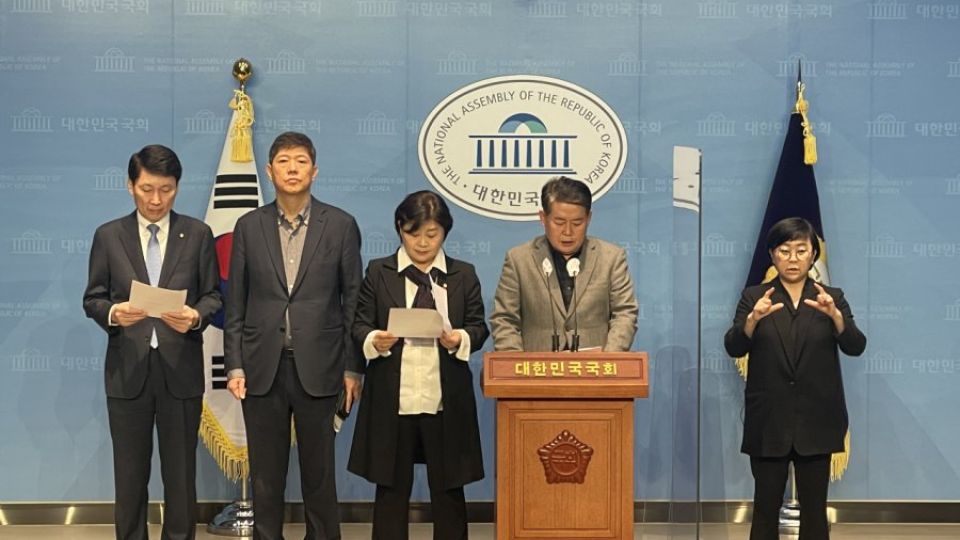March 8, 2023
SEOUL – South Korean opposition lawmakers on Tuesday signed a statement welcoming the re-introduction of the US House of Representatives bill calling for efforts to achieve a formal end to the Korean War.
“We, 166 lawmakers of South Korea, thank the members of the US Congress for their insight on and dedication to building peace on the Korean Peninsula,” the South Korean lawmakers from the main opposition Democratic Party and the minor progressive Justice Party said in the statement.
“We find it particularly meaningful that 19 lawmakers, including Andy Biggs from the Republican Party, joined the bipartisan initiative,” they said. The other 18 co-sponsors are Democrats.
In the statement, the South Korean lawmakers also highlighted terms of the bill dispelling concerns that the efforts to bring an end to the war could lead to the withdrawal of US forces from South Korea.
In one of the sections, the bill stated: “Nothing in this Act may be construed to affect the status of United States Armed Forces stationed in South Korea or any other foreign country.”
The lawmakers who signed the statement called on the ruling People Power Party to pursue efforts to “resume dialogue with North Korea and the US for denuclearization and lasting peace on the peninsula.”
On March 1, US Rep. Brad Sherman (D-California), a senior member of the House Foreign Affairs Committee, along with 19 members of Congress, proposed the Peace on the Korean Peninsula Act, reintroducing the bill that was first introduced in 2021 during the previous session of the House.
The bill expresses support for the commitments made in the 2018 Panmunjom Declaration, over which the leaders of the two Koreas agreed to work to declare the end of war.
The bill states that the “persistence of a state of war does not serve the national interest of the United States and its allies.”
The bill also urges the US Secretary of State to pursue diplomatic engagement with North Korea and South Korea for the goal of reaching “a binding peace agreement constituting a formal and final end to the state of war between North Korea, South Korea and the United States.”


